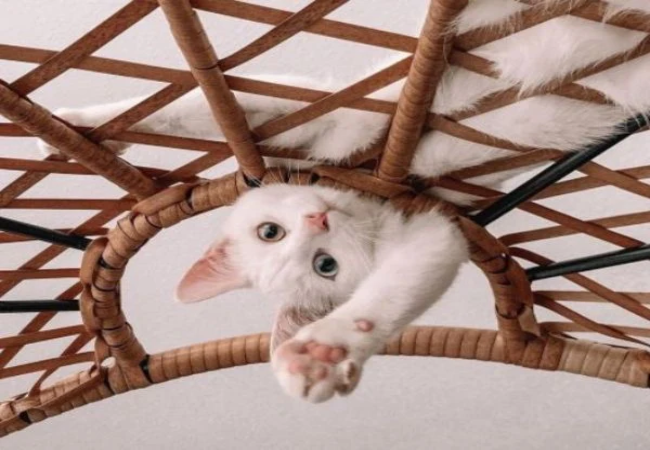Natural Joint Support for Cats 2025: Vet Foods & Supplements for Mobility 🐱✨

In this article
Natural Joint Support for Cats 2025: Vet Foods & Supplements for Mobility 🐱✨
By Dr. Duncan Houston BVSc
Does your cat hesitate to jump up on the bed? Walk stiffly after naps? Joint issues in cats often go unnoticed—until mobility and comfort are already compromised. The good news? Natural food, gentle supplements, and smart routines can help aging joints stay strong and pain-free.
I’m Dr. Duncan Houston, veterinarian and founder of Ask A Vet. Here’s how to naturally support your cat’s joints with anti-inflammatory nutrition, gentle movement, and safe daily strategies.
🧠 How to Spot Joint Issues in Cats
- Less climbing, jumping, or chasing toys
- Walking stiffly, especially after rest
- Mattes in fur (cat isn’t grooming hard-to-reach spots)
- Resisting touch near hips or spine
✅ Natural Foods That Support Joint Health
1. Omega-3 Fatty Acids (EPA/DHA)
- Reduce inflammation, support cartilage and joint lubrication
- Sources: sardines, wild salmon, anchovy oil
2. Lean Animal Proteins
- Turkey, rabbit, duck, or lamb—maintains muscle mass
3. Bone Broth
- Rich in glycine, collagen, glucosamine, and chondroitin (natural joint support)
4. Anti-Inflammatory Veggies (Cooked, in small amounts)
- Pumpkin, spinach, zucchini, or steamed broccoli
🌿 Vet-Approved Joint Supplements for Cats
- Green-Lipped Mussel: Natural source of chondroitin, omega-3s, and anti-inflammatory lipids
- Glucosamine & Chondroitin: Help rebuild cartilage and improve joint fluid
- Turmeric (curcumin): Use only vet-formulated doses for cats
- Fish Oil: High in EPA/DHA—must be feline-safe and properly dosed
📋 Sample Joint-Friendly Meal
- Cooked rabbit or turkey
- 1 tsp pumpkin + warm bone broth
- Glucosamine/chondroitin supplement + fish oil added at serving
🏠 Lifestyle Tips for Cats with Joint Stiffness
- Use stairs or ramps for beds, sofas, or windowsills
- Provide low-entry litter boxes and shallow food bowls
- Encourage gentle play and stretching (wand toys, food puzzles)
- Place soft beds in warm, draft-free areas
🛑 What to Avoid
- Overweight = added joint strain—monitor food portions
- NSAIDs not prescribed by a vet—cats are sensitive to many meds
- Jump-heavy cat furniture or slippery floors without rugs/mats
🔗 Tools from & Ask A Vet
- Ask A Vet – Upload videos of movement, food logs, and supplement info to get joint-care guidance from a vet
📋 Summary Excerpt
Older cats hide joint pain well—but natural food, fish oil, bone broth, and gentle mobility support can keep them active and comfortable. A vet shares how to care for feline joints without harsh meds.
❓ FAQs
-
Q: What’s the best joint supplement for cats?
A: Green-lipped mussel, fish oil, and glucosamine/chondroitin are all safe and effective when dosed for cats. -
Q: Can cats eat turmeric?
A: Only in feline-safe formulations. Never use human capsules—always get vet guidance. -
Q: How can I tell if my cat is in joint pain?
A: Look for stiffness, reduced jumping, overgrown nails, or changes in grooming—subtle signs of mobility issues.






